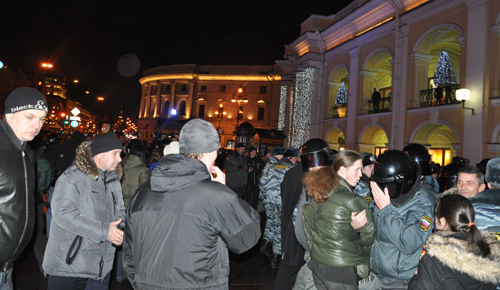On 15 September 2012 the police brutally dispersed a gathering of up to 500 citizens, detaining 24 activists and injuring the organizer, Other Russia activist Ekaterina Zaitseva. She was hospitalized after receiving a blow in the head from a police officer.
When Zaitseva complained to a local court that the city administration’s refusal to grant permission to arrange the gathering was illegal, her complaint was turned down. In an appeal to the Nizhny Novgorod regional court prepared jointly with Stanislav Dmitrievsky, a well-known Nizhny Novgorod activist and Norwegian Helsinki Committee partner, Zaitseva complained that Article 11 of the European Convention on Human Rights had been violated.
The appeal argued that according to Article 15 paragraph 4 of the Constitution of the Russian Federation, international law provisions should prevail over national law. Referring to judgments of the European Court of Human Rights, the complainant held that the city administration’s interference with her freedoms was not provided for by law and was not necessary in a democratic society, which are criteria set by the Convention.
The regional court accepted the appeal, and a panel of three judges heard the case. In its decision, the court ruled that the city administration’s refusal to provide a place and time for such a public event was illegal.
Since the Duma elections in December 2011, Russia have seen a wave of largely peaceful protests against election fraud, corruption and police brutality sweeping through bigger and smaller cities in the country. The protesters are often met with brutal police operations, arrests and administrative and criminal persecution. – Russian courts applying human rights provisions or dealing with such sensitive cases independently is not seen often, says Ekeløve-Slydal. – This is indeed good news. Other courts should take notice.
